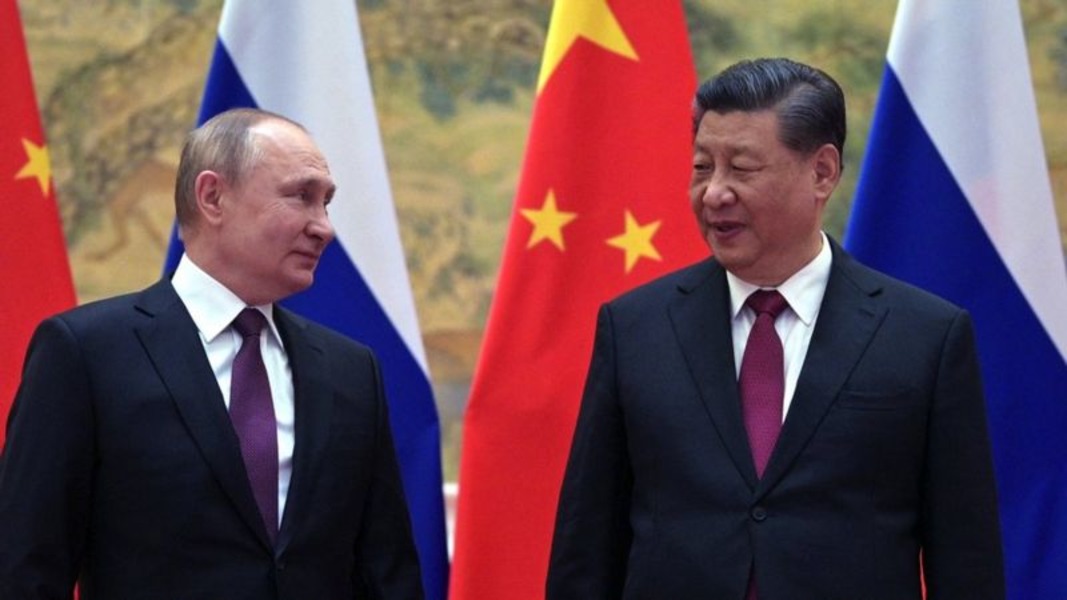In 2022, the most stringent sanctions since 2014 were imposed on Russia, restricting the supply of high-tech products to the country. These sanctions were intended to significantly undermine the operations of the military-industrial complex and limit Russia’s capacity to produce military equipment and armaments.
However, despite these harsh sanctions, the Russian defense industry has continued to operate and, in some metrics, even demonstrated growth. This resilience can be attributed in part to the ongoing supply of high-tech equipment from Chinese machine manufacturers, despite the sanctions targeting Russian enterprises.
Throughout 2023, China exported metalworking machinery to Russia valued at $390 million, a fourfold increase compared to $94 million in 2022. This surge underscores the deepening cooperation between Chinese manufacturers and the Russian military-industrial complex amid the challenges posed by Western sanctions.


The Chinese authorities maintain complete control over their private sector, and given the volume of these exports, it can be said that there is an unofficial approval for companies to conduct any business with Russia that benefits both countries. As a result, halting the export of dual-use goods, such as laser machines, is nearly impossible without decisions from the Chinese government.
One of the leading suppliers of machinery to Russia has been the Chinese company G-WEIKE (GWEIKE TECH CO. LTD).

The company supplied Russia with the LF1313 laser cutting machine featuring autofocus, which ultimately went to the Scientific Research Institute of Measuring Instruments—Novosibirsk Plant named after Comintern, involved in the production of the S-300 and S-400 Triumph air defense systems, as well as the associated radar stations. In total, G-WEIKE executed 36 shipments, distributed as follows:

Additionally, the Chinese company Z-MaT (ZHEJIANG ZHENHUAN CNC MACHINE TOOL CO. LTD) supplied high-precision lathes equipped with the Super P30H feeding device and Siemens 808D CNC. These machines are used by the Scientific and Production Complex “Iskra” for creating radio-electronic equipment, computing technology, communication devices, and special-purpose equipment.
- The shipments were made through the company “AMG”;
- Four shipments were processed through “ALTEZA”.
The Chinese company Z-MaT (ZHEJIANG ZHENHUAN CNC MACHINE TOOL CO. LTD) supplied high-precision lathes equipped with the Super P30H feeding device and Siemens 808D CNC. These machines are utilized by the Scientific and Production Complex “Iskra” for the production of radio-electronic equipment, computing technology, communication devices, and special-purpose apparatus. The shipments of the high-precision lathes were made through the following companies:

The company “AMG” facilitated the deliveries. Four shipments were processed through the company “ALTEZA.”
The Chinese company SINO (SINO MACHINERY CO. LTD) supplied machining centers to Russia through the company “KAMY GROUP.” Two verified shipments were intended for the M.I. Kalinin Machine Engineering Plant and were utilized in the production of military equipment, including the Buk missile systems “BUK M1,” “BUK-M1-2,” “KRUG,” “KUB,” and “S-300VM.”
,The Chinese company JPW Tools AG (JPW TOOL GROUP HONG KONG) provided a wide range of products to the Russian company “ITA TECHNOLOGIES.” This included:
- Metal-cutting lathes;
- Metalworking milling machines;
- Planing and thicknessing machines;
- CNC lathes;
- Metalworking drilling machines;
- CNC turning lathes;
- Vertical CNC milling machining centers;
- Shaping machines;
- Grinding machines;
- Tool sharpening machines;
- Accessories for metal-cutting lathes;
- Flat grinding machines.

These supplies play a crucial role in supporting the production capabilities of the Russian defense industry.
The radial drilling machine JET-GHD-55 PFA380V was supplied to the Ulyanovsk Mechanical Plant for the production of air defense systems such as “Shilka,” “Tunguska,” and the Pantsir missile system, as well as radar systems.
The Chinese company KEDE NUMERICAL CONTROL CO. LTD provided machining centers and spare parts for finishing centers to Russia, which were subsequently utilized by the M.I. Kalinin Machine Engineering Plant in the creation and maintenance of the Buk missile systems “BUK M1,” “BUK-M1-2,” “KRUG,” and “KUB,” as well as the “S-300VM.”
We have also verified the following deliveries:
- Machining centers through the Russian companies “KAMY GROUP” and “NEWTON-ITM.”
- Finishing centers and auxiliary structural parts for vertical milling finishing centers were delivered through the company “UNIMATIC MSK.”
The Chinese company SHENYANG HEAD SCIENCE & TECHNOLOGY CORPORATION LIMITED made 11 deliveries to nine Russian companies between May and August 2023, supplying waterjet cutting machines. These machines are widely used in aviation, metallurgy, construction, and other industries. Their ability to cut materials of varying hardness makes them essential in manufacturing components and products from diverse raw materials.
Another Chinese firm, NINGBO HAITIAN PRECISION MACHINERY CO. LTD, delivered vertical milling machining centers, along with parts and accessories, to PJSC “Saturn.” These tools are used by the company for producing onboard ground-based radio-electronic equipment.
The vertical milling machining center was specifically delivered through Russian companies “PROMARSENAL” and “PROMTECH KAZAN.”
The Chinese company TIANJIN NO.1 MACHINE TOOL CO. LTD made two deliveries of CNC gear-shaping machines, including three YK5115A machines, which were received by the Machine-Building Plant named after M.I. Kalinin. These machines are used for the production of opto-mechanical and opto-electronic devices, surveillance equipment, and fire control systems for armored vehicles and aviation, such as “K”-type helicopters and “SU” aircraft.

The delivery was made through the Russian company “UNIMATIC MSK.”
Due to regular deliveries of essential equipment from China, the Russian military-industrial complex (MIC) has been able to maintain its functionality and productivity. Given that these were not isolated incidents but part of a systemic pattern, it is reasonable to assert that Chinese leadership has likely authorized private companies to engage in this type of partnership with Russia.

